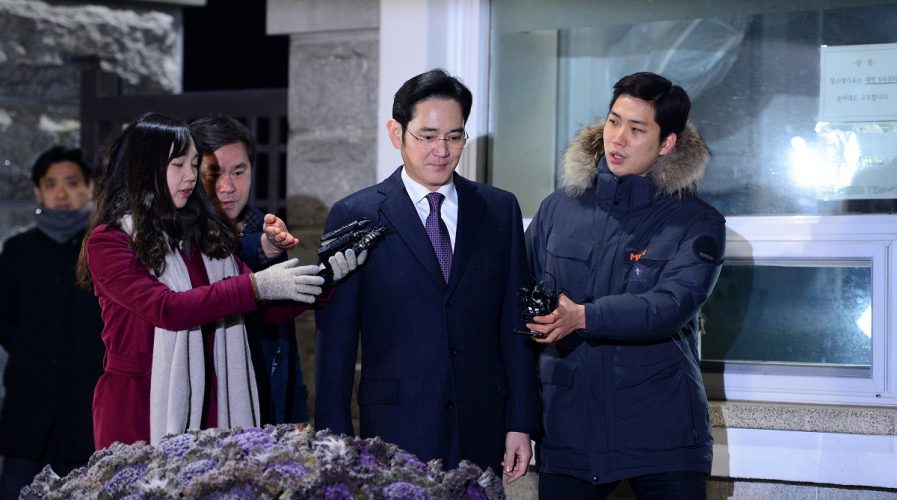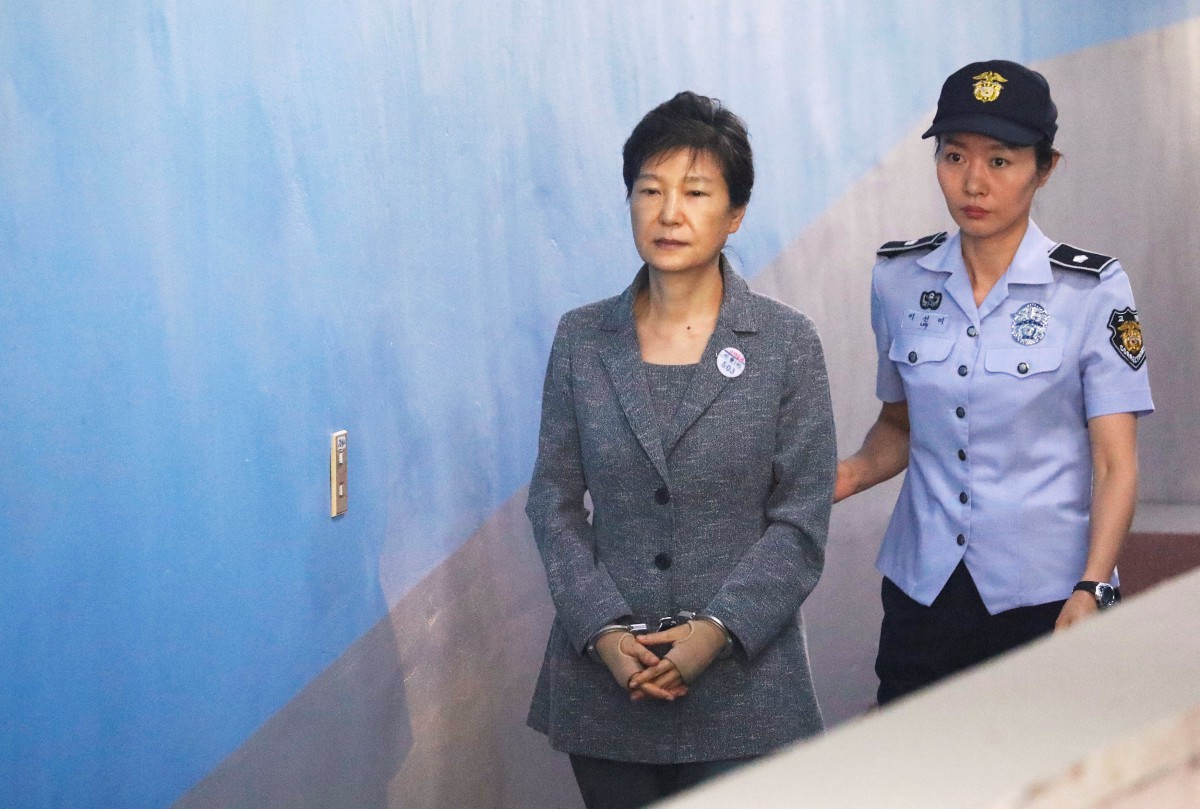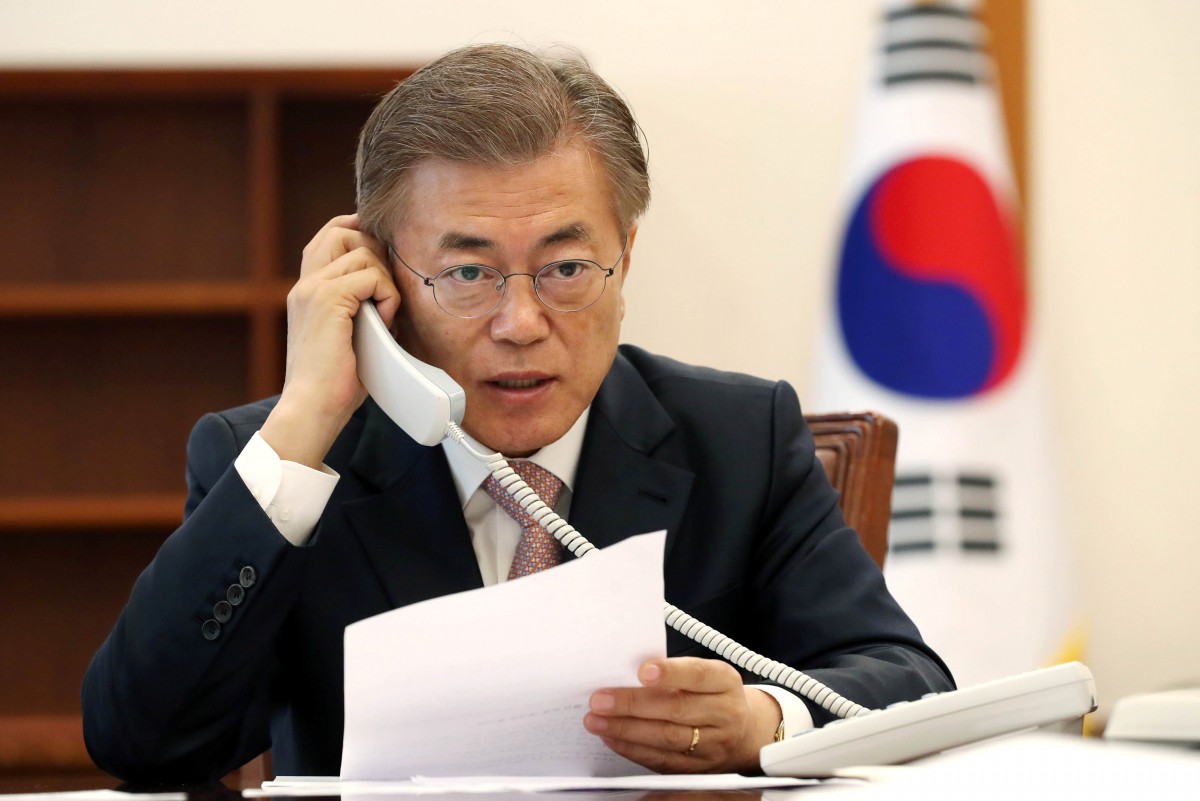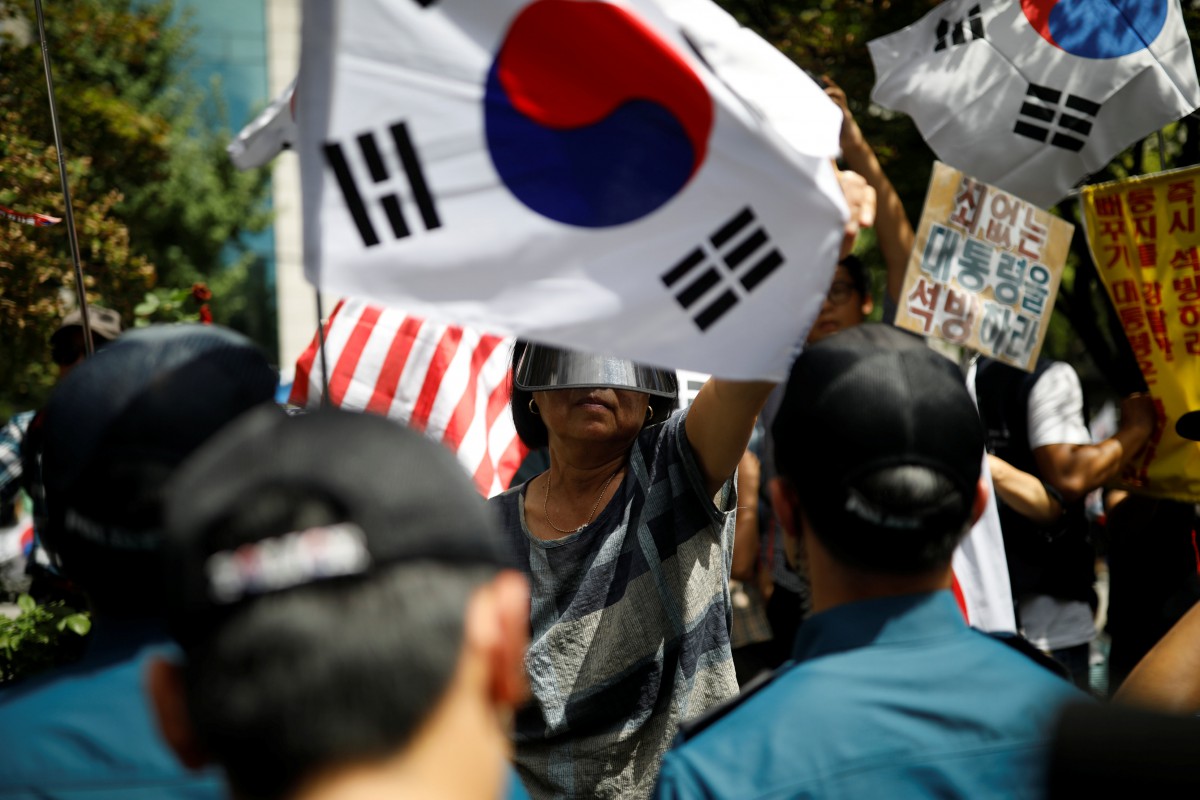
Lee leaves the Seoul Detention Centre in Uiwang, South Korea. Source: Reuters
Will convicting Samsung heir change South Korea’s chaebol culture? Probably not.
SAMSUNG heir Lee Jae-Young was recently convicted on charges of bribery, embezzlement and perjury, leading to a five-year sentence and hopes there could be real change in the stifling business culture dominated by a handful of huge chaebols.
The conviction is leading many to believe that times are a’changin’ for South Korean business leaders. Lee’s sentence is remarkably heavy for a country where it’s become the norm for leaders to receive light sentences, which eventually lead to them returning to the corrupted boardrooms from whence they emerged.
But is this really the case?
“Chaebols” are huge family-run conglomerates who dominate South Korea’s business industry. The word comes from the amalgamation of the words for wealth (“chae”) and clan (“bol”). Among them are some well-known names such as Hyundai, LG, and yes, Samsung. The power of the chaebols is well-documented and notorious – the top five companies contribute 77 percent of the country’s total gross domestic product (GDP) and are cultural forces to be reckoned with.

South Korean ousted leader Park Geun-hye arrives at a court in Seoul, South Korea. Source: Reuters
The chaebol culture emerged after the military era of Park Chung-hee, who took power in 1961, and is the father of former president Park Geun-hye, who was recently ousted and convicted on charges of corruption. In the aftermath of the Korean War, family-owned firms in South Korea struck deals with Park’s authoritarian government who afforded them cheap loans and unfettered power to sprawl far and wide across the country’s economy.
The result was the “Miracle on the Han River” that saw South Korea leap into one of the world’s biggest economies, an export-driven, technology-enabled country with sweeping economic, political and cultural influence.
SEE ALSO: Samsung heir Jay Y. Lee sentenced to five years in prison
However, as the conviction of Lee has shown, the power chaebols once wielded is under scrutiny from all over the country. Many workers across South Korea, especially those in small and medium businesses, have grown weary of these chaebols and their outsized power to control the fate of smaller enterprises. They’ve become bullies and arrogant, many say.
Perhaps it’s poetic justice then that it’s in the wake of Park Chung-hee’s daughter’s downfall that chaebol culture is getting a cold reality check. Park Geun-hye’s ousting as president and the introduction of liberal reformer Moon Jae-in has many hoping that the monopoly-like powers afforded to the chaebols could be truly challenged this time.
The Economist Intelligence Unit’s Agathe L’Homme, a South Korea analyst, told Tech Wire Asia that anti-corruption efforts were already at the top of the government’s agenda even before the election of Moon, as evidenced by a 2016 anti-graft law that was passed.

Moon swept into power on promises to reform the country’s deeply entrenched chaebol culture. Source: Reuters
“Clearly the question will remain at the forefront of the social and political scene,” L’Homme said in an email.
“However we are cautiously optimistic about the success of this momentum.”
Lee’s conviction to many signalled a sharp sea change in the way business luminaries are treated in South Korea. Though this isn’t the first time a business leader has been found guilty of corruption – Lee’s father, Lee Kun-hee, will be awaiting his son’s arrival in prison – Lee Jae-young will be the first high-profile chaebol-related conviction in the post-Park era.
“The sentence – which could change following the appeal of Lee – is rather exceptional because it is not suspended and it is also longer than previous sentences given to other chaebol leaders,” L’Homme said.
SEE ALSO: Samsung remains a ‘chaebol’, bolstered by high first-quarter profits
She added that Moon will be unlikely to pardon Lee on Korea’s National Day of Liberation, which falls on Aug 15. Traditionally, pardons are handed out on that day, as was evidenced by the pardon handed to CJ Group chairman Lee Jay-hyun, by former President Park Geun-hye. Moon has previously said, while campaigning, that he would be looking to restrict pardons for chaebols.
Moon’s administration swept into power in May, championing left of center policies, and a particularly hostile view against chaebols. Among his campaign promises was a vow to go after chaebols which he said stifle the growth of smaller companies and prevent transparent and democratic management.
Is it enough to break up the chaebols?

Lee leaves after his verdict trial at the Seoul Central District Court in Seoul, South Korea, on Aug 25, 2017. Source: Reuters
However, L’Homme said that the potential for real change of the chaebol culture in South Korea is unlikely, due to several significant realities of South Korean politics and culture. It’s unlikely that Lee’s arrest will truly set a precedent for future anti-chaebol actions for the simple fact that the chaebols are extremely powerful.
“The Economist Intelligence Unit does not expect any onslaught against the country’s chaebol, as their contribution to the economy will remain decisive,” L’Homme said.
Breaking up the huge conglomerates could be potentially dangerous for the country, as it could introduce an element of instability for all players across all industries. The chaebols still control significant swathes of the economy, so a forced breakup could prove detrimental. What more, chaebols have a history of leading their businesses from behind prison walls, and there are examples of some executive rejoining their boards soon after leaving prison.
SEE ALSO: With new sheriff in town, South Korea’s big businesses duck for cover
Furthermore, Lee’s conviction will not be likely to change chaebol culture for the mere fact that Lee is just not that important. “If we accept the narrative of Lee Jae-yong’s defense, which painted him as at best a weak and distant leader and at worst as an incompetent one, we can also conclude that the Samsung Group will function well without him,” said L’Homme.
Even Moon’s efforts might be in vain. The new president will still be hampered by the lack of a controlling stake in government, and will be working with a weak majority and the previous nine long years of conservative rule which will be hard to shake off so easily.

Protesters from a conservative group that supports Park Geun-hye attend a rally to demand Lee’s release outside a court in Seoul, South Korea. Source: Reuters
However, there’s still a lot of hope for anti-chaebol advocates who are looking to Moon’s government to provide much-needed breathing space for SMEs.
Moon will also be working with Kim Sang-jo – nicknamed the “chaebol sniper” – his new Fair Trade Commissioner, who is armed with a mandate to toughen regulation and enforcement. L’Homme points out that regulation, in this case, will be a much easier route than new legislation.
SEE ALSO: Samsung dismantles corporate strategy office amid bribery scandal
South Korea’s politics is still deeply immured with chaebol power, and expect politicians from across the spectrum to be in the pockets of chaebols.
“Moon Jae-in could still hope to get new amendments to the Monopoly Regulation and Fair Trade Act,” said L’Homme.
“Lee’s conviction alone is unlikely to trigger significant change. This will need to be pushed on the political arena, by Moon and his administration.
“However, the new administration will be earnest in its efforts to equalise the domestic playing field in favour of the SMEs and the chaebol will probably be on their best behaviour for a little while.”
READ MORE
- Samsung introduces new generation of leaders, recommends new chairman
- A brief guide to possible picks for Samsung’s next CEO
- Samsung heir Jay Y. Lee sentenced to five years in prison
- Samsung remains a ‘chaebol’, bolstered by high first-quarter profits
- Court ruling strikes first blow to Samsung on patent infringement case
